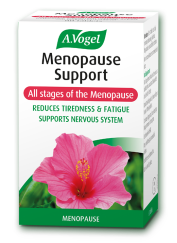The different ways you can feel about yourself
A lot of you contact me, saying that you don't feel like yourself. You feel like a completely different person in perimenopause and menopause. Compared to what you used to be like, you can sometimes seem like night compared to day.
You might also find it really frustrating not knowing who you are anymore or what you're doing. It can have a profound effect on your relationships, on your self-worth, and also on your confidence in several different ways.
So, do you feel like you've just completely changed, either personality-wise or emotionally? Do you feel that you are becoming maybe more reactive, more argumentative, or is it the complete opposite? Do you feel that you worry more, you're much more fearful and timid?
Do you feel a kind of emotional numbness or detachment from your loved ones, friends, or colleagues? Do you feel fed-up and bored, and feel like you want something else? You feel that there's something else out there, and there's something more to life, more to what you're experiencing now?
Do you find that maybe you want to put yourself first? I'm always telling people to ‘put themselves first,’ because you need that self-care going through perimenopause and menopause; but do you feel guilty if you even think about putting yourself first on your list? Or do you feel that you just want to escape and go somewhere completely different?
The impact of these feelings
All these feelings can have a big impact on your loved ones, and your other relationships such as friendships. They can also impact your work life.
So, you may find that you are no longer happy in your relationship. You've fallen out of love with your partner. Your friends may be irritating you, and you just don't want to spend time with them. You may feel unsatisfied at work, either the work is now too much for you, or you may find that you start to get really bored and fed up and you want to look for something else.
What can cause these feelings?
Several different scenarios can contribute to or cause these feelings.
Hormonal changes
So, we know that falling oestrogen levels will affect our mood. It will affect our perception of the world all around us and, very often, that's pulling us down, making us feel fearful, fed-up, a loss of confidence.
Our testosterone levels can also change. And at some point, for a lot of women, testosterone ends up being higher than oestrogen and progesterone, and that's the one that will make you more argumentative, wanting to get out there more, and wanting more out of life. Maybe you're fed-up and you need some extra challenges. So that in itself can affect relationships. You may find that you're standing up to people a lot more, and you're getting shouty. You're feeling angry, but angry in a good way, such as being more assertive. Maybe it's all to do with social injustice; you're wanting to input more into life in general.
It can also be due to oxytocin. I've talked about oxytocin being a sort of connective or ‘love’ hormone. It's a hormone that keeps us connected to our loved ones, and if that starts to fall, then the bonds that we made with people, maybe many, many years ago, can lessen quite considerably. And that's often where relationships start to break down, because you've kind of lost that loving feeling if you like, and the same with friendships as well.
The really important thing here to realise is that this is another one of those symptoms that has a reason behind it. It is not in your head. So many of you tell me that when you're experiencing these, and other people notice the changes as well, that you get told, "What's wrong with you? It's all in your head. There must be something wrong with you somewhere." It's not!
Again, this is one of these symptoms where it's very much a physiological one, and it's all due to the balance and the level of hormones you have at that given time. So please, it is very important to bear in mind that this is really physical.
Other symptoms that can impact how you feel
Other symptoms can also put pressure on this situation. If you're not sleeping well, your emotions are going to be much closer to the surface. When you are fatigued, the same applies.
If you start to put weight on, that can affect your confidence and also your relationships with other people. And brain fog. You find that you're not thinking straight, and that can sort of compound all the feelings that we have that might be particularly new to us.
What can you do to help yourself?
Here are a few things that I recommend to help support your emotional well-being during perimenopause and menopause:
Find a release: Don't put pressure on yourself. Don't feel guilty because you're feeling like this, because this is just part of the menopause and perimenopause process. Very often, releasing these emotions, either by journaling, talking to a close friend, or just letting it out to a stranger, can often be helpful. Just voicing how you feel can make a huge difference and can release a lot of that tension.
Find an exercise you enjoy: Exercise is really important because exercise is going to give you those feel-good endorphins. Fast walking is a really good one. Dancing is another good one. Shut the door, shut everybody out, put some dance music on, and dance your heart out for half an hour. It can be such a joyous experience.
And remember, you're not alone in this. I see this from people every single day, so this is a really common symptom that's certainly not recognised nor accepted enough.
Try a new hobby: I know, for me, at the beginning of my menopause, I moved into a new house and I had a garden. At that time, I didn’t want to talk to anybody. I wanted to fly away, and not have to deal with other people. So, I found that doing gardening was a real therapy for me and made me feel so much better.
Supplements to support your emotional well-being: We know that magnesium is just fabulous during perimenopause and menopause. It helps support your nervous system, as well as your psychological and cognitive function. We have two helpful supplements with magnesium in them, so that's our Focus Perimenopause tablets and our Menopause Support tablets.
Remember to eat well too: Even if it's an emotional symptom, we need to support our bodies physically too, so remember to eat well. Also, drink plenty of water every day, because dehydration will enhance any emotional issue that you're experiencing.
And remember, take it easy on yourself. This is part of your journey. And it's often just a phase, and I don't mean ‘just’ a phase! We have lots of different phases as we go through menopause and different things can happen either physically or emotionally. Very often, this is just one of these phases that comes. If we can cope with it, that's even better, and then that eases off, and maybe something else comes along.
So, I hope you found this one helpful. I know it was quite a strange one and a difficult one for me to cope with, but I'm out of it now, and very sociable compared to what I felt like then. So, if any of you have had any experience of this, what did you do to make yourself feel better? As always, I love reading your stories, so thank you for that.
Until next time, take care and have a lovely week.
You may also find these topics helpful:
Emotional Menopause Symptoms: Why they can worsen or come back









